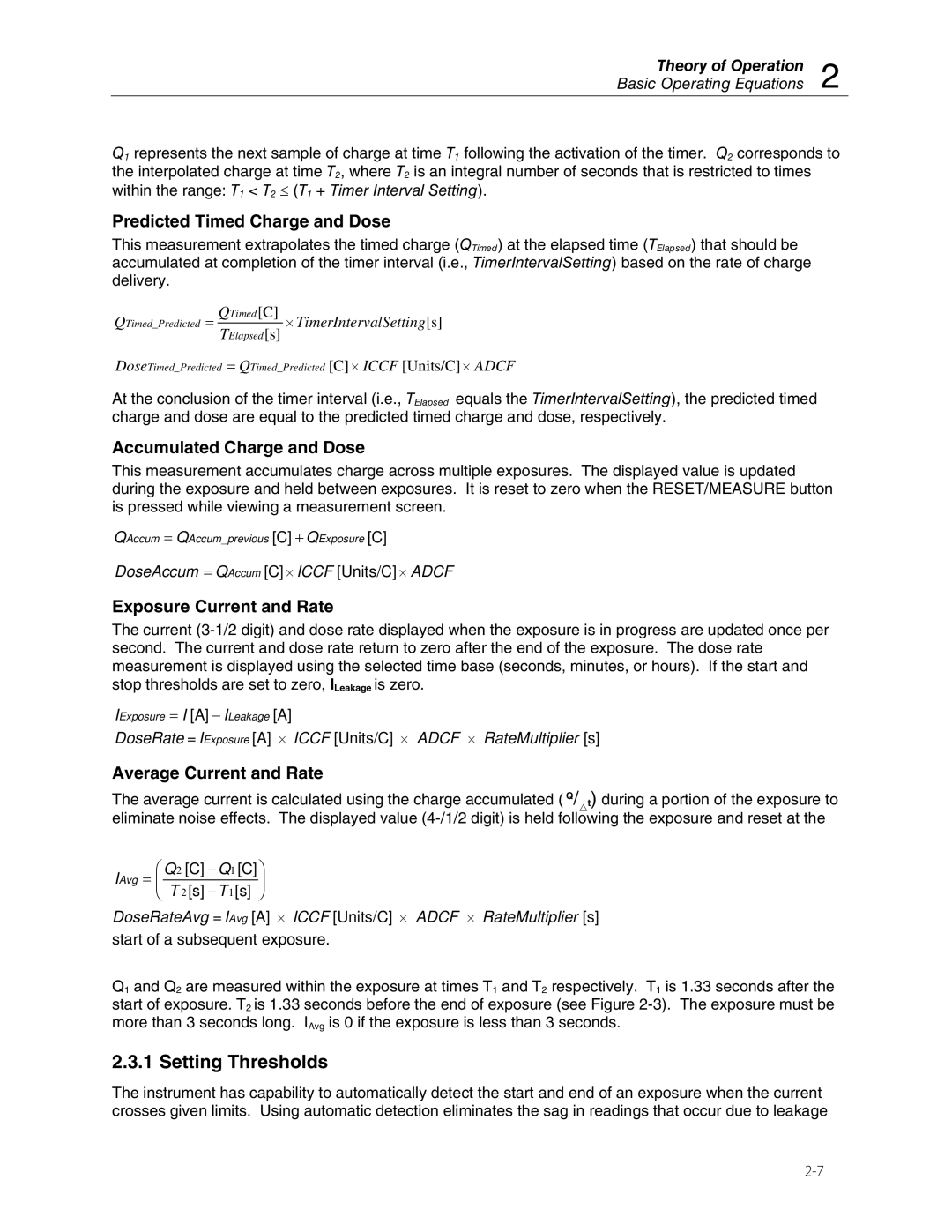Theory of Operation | 2 |
Basic Operating Equations |
Q1 represents the next sample of charge at time T1 following the activation of the timer. Q2 corresponds to the interpolated charge at time T2, where T2 is an integral number of seconds that is restricted to times within the range: T1 < T2 ≤ (T1 + Timer Interval Setting).
Predicted Timed Charge and Dose
This measurement extrapolates the timed charge (QTimed) at the elapsed time (TElapsed) that should be accumulated at completion of the timer interval (i.e., TimerIntervalSetting) based on the rate of charge delivery.
= QTimed[C] ×
QTimed_Predicted TElapsed[s] TimerIntervalSetting[s]
DoseTimed_Predicted = QTimed_Predicted [C] × ICCF [Units/C] × ADCF
At the conclusion of the timer interval (i.e., TElapsed equals the TimerIntervalSetting), the predicted timed charge and dose are equal to the predicted timed charge and dose, respectively.
Accumulated Charge and Dose
This measurement accumulates charge across multiple exposures. The displayed value is updated during the exposure and held between exposures. It is reset to zero when the RESET/MEASURE button is pressed while viewing a measurement screen.
QAccum = QAccum_previous [C] + QExposure [C]
DoseAccum = QAccum [C] × ICCF [Units/C] × ADCF
Exposure Current and Rate
The current
IExposure = I [A] − ILeakage [A]
DoseRate = IExposure [A] × ICCF [Units/C] × ADCF × RateMultiplier [s]
Average Current and Rate
The average current is calculated using the charge accumulated ( Q/Ut) during a portion of the exposure to eliminate noise effects. The displayed value
⎛ | Q2 [C] − Q1 [C] | ⎞ | |
IAvg = ⎜ | ⎟ | ||
T 2 [s] − T1[s] | |||
⎝⎜ | ⎠⎟ |
DoseRateAvg = IAvg [A] × ICCF [Units/C] × ADCF × RateMultiplier [s]
start of a subsequent exposure.
Q1 and Q2 are measured within the exposure at times T1 and T2 respectively. T1 is 1.33 seconds after the start of exposure. T2 is 1.33 seconds before the end of exposure (see Figure
2.3.1 Setting Thresholds
The instrument has capability to automatically detect the start and end of an exposure when the current crosses given limits. Using automatic detection eliminates the sag in readings that occur due to leakage
